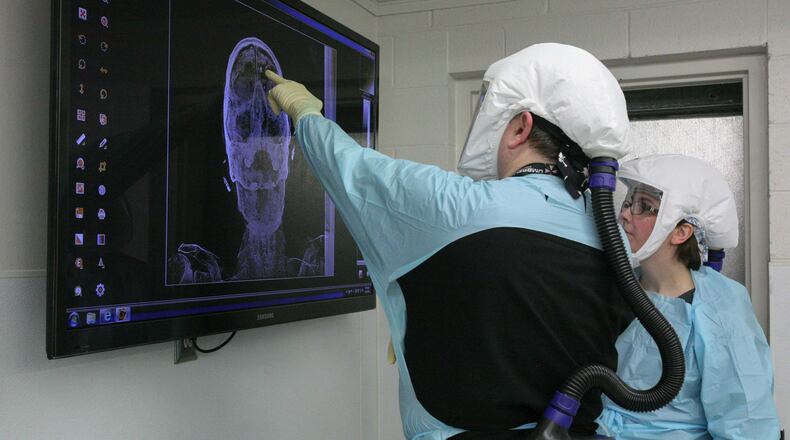Despite a decline in the number of accidental overdose deaths in Cobb last year, about twice as many people died from drugs as from car crashes, according to the latest annual report from the Cobb Medical Examiner.
The number of accidental fatal overdoses dropped from a peak of 146 in 2017 to 112 in 2018, but Chief Medical Examiner Christopher Gulledge stopped short of drawing conclusions about what drove the drop. Accidental overdoses were second only to cardiovascular disease as a cause of death.
“We don’t know if that’s going to be a sustained trend,” he said of the decline in drug deaths. “It came down to the second worst year we’ve ever had. I don’t know if that’s necessarily good, but it’s better.”
The medical examiner’s office is tasked with investigating accidents, homicides, suicides and unnatural or unusual deaths, and spotting patterns that could reveal public health threats. The ME provides the raw data to researchers and policy makers but generally does not analyze the reasons behind mortality trends.
According to the annual report, most of the drug deaths in Cobb last year were attributed to opioids, but in many cases a combination of drugs and alcohol was responsible. The data also shows a slight downtick in deaths from fentanyl and prescription opioids, and a slight uptick in heroin deaths.
The report is the fourth produced under Gulledge, who took over as medical examiner in 2015 following a blistering internal report that found serious problems with the department.
The chief medical examiner said that although overdoses and homicides tend to grab headlines, the most common cause of death his office investigated was cardiovascular disease, in keeping with national trends.
“Cardiovascular disease in younger patients is specifically something that early intervention can have a very significant effect if you go to the doctor,” Gulledge said. “Preventative care is infinitely cheaper and more effective than acute care.”
About the Author
Keep Reading
The Latest
Featured




